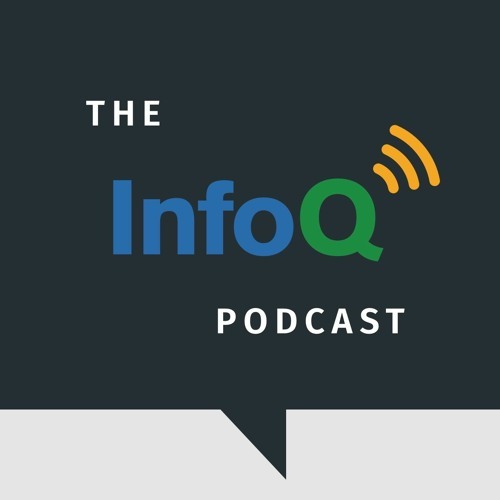Codetown
Codetown ::: a software developer's community
It's all about Yandda! (an Android app)
It was in February this year that i sent this mail to a friend of mine:
from Buls Yusuf
to date Sun, Feb 20, 2011 at 2:22 PM
subject Woz 'ere
mailed-by gmail.com
It just came to me. I remember in secondary school then, when you go into classrooms you'll find signatures of people/students that were there before. You'll find things like "Buls was ere, 95". That kind of thing.
Now imagine us writing an Android app that let's people give details of places they are at and that info be made available to anyone having the app to see a list of all those who have been at that location before. It's going to be fully location based.
An example, I go to kilmanjaro on the 10th of Jan and I use the app to save my signature (a phrase, my name, time date etc) using my gps enabled device. You come to kilmanjaro on the 14th of Feb and using the app you view a list of all peoples' signatures that have been at that very location (you should be able to view by name, date, keyword/phrase etc)
The thought just came to me like 10mins ago. What do you think about it?
Buls
Now, i didn't really work on that idea till later in May or so when Google launched the Android Developer Challenge for Sub-Sahara Africa. I had played around with the Android SDK months earlier so i didn't hesitate to rise to the developer challenge.
After months of hacking on code and making it up to the final round of ADC, Yandda! came into existence or partial existence if i may say, since i still have a lot of features i would like to add to it. ;-)
Well, it's currently in the Android Market and below is a description of Yandda! (please try it out)
If you've ever wished that people know that you had visited a particular place in the past or that you were simply there before them, then Yandda! is just the app for that!
Yandda! lets you engrave a signature and tie it to a location (buildings, parks, landmarks etc) for future visitors to discover. It lets other users of Yandda! know that you were once at a particular location. Its similar to how people engrave their initials on walls just so that others can see them. You can engrave and share signatures publicly, with a certain clique of friends or even privately (just visible to you only and no one else).
The Cliques feature of Yandda! lets you group your friends so you can choose which clique of friends to share your signatures with when you engrave them. Depending on your activity on Yandda! you can earn trophies that give you special capabilities. Currently there are 3 trophies that can be earned (more trophies shall be added in the future).
You can create a game made up of your publicly visible signatures for other users to conquer. Anyone playing a game must visit and discover signatures in the actual location they were engraved in order to conquer them. You complete a game by conquering all signatures that make it up. A lot of new features shall be added to games in the future. Please note that when you create a game, it is geo-tagged. This means that when anyone intends to register and play a game they will be presented with games that were created within their current location.
You can also choose what your profile visitors get to see with regards to your public signatures, friends and trophies.
Please send feature requests and suggestions to yanddawachi.abp@gmail.com. Yandda! is in its infancy and new features shall be constantly added so please be a part of it!
Yandda! is available in the android market here. Hope you like it!
Notes
Welcome to Codetown!
 Codetown is a social network. It's got blogs, forums, groups, personal pages and more! You might think of Codetown as a funky camper van with lots of compartments for your stuff and a great multimedia system, too! Best of all, Codetown has room for all of your friends.
Codetown is a social network. It's got blogs, forums, groups, personal pages and more! You might think of Codetown as a funky camper van with lots of compartments for your stuff and a great multimedia system, too! Best of all, Codetown has room for all of your friends.
Created by Michael Levin Dec 18, 2008 at 6:56pm. Last updated by Michael Levin May 4, 2018.
Looking for Jobs or Staff?
Check out the Codetown Jobs group.
InfoQ Reading List
Cloudflare Debuts Markdown for Agents and Content Signals to Guide AI Crawlers

Cloudflare has introduced “Markdown for Agents,” a feature that lets AI crawlers request Markdown versions of web pages. The company pairs the feature with a proposed “Content Signals” mechanism that lets publishers declare whether their content may be used for AI training, search indexing or inference.
By Matt FosterPresentation: What I Wish I Knew When I Started with Green IT

Ludi Akue discusses how the tech sector’s rising emissions impact our global climate goals. Drawing from her experience as a CTO, she explains seven key lessons for implementing Green IT. She shares insights on LCA assessments, the paradox of microservices, and why FinOps doesn’t always equal green.
By Ludi AkueVue Router 5: File-Based Routing Into Core with No Breaking Changes

Vue Router 5.0 has integrated unplugin-vue-router into its core, enhancing file-based routing and TypeScript support. This transition release boasts no breaking changes, simplifies dependencies, and introduces experimental features like data loaders and improved editor tooling. Ideal for Vue.js developers, it positions itself as a bridge to the upcoming ESM-only version 6.
By Daniel CurtisPodcast: [Video Podcast] AI Autonomy Is Redefining Architecture: Boundaries Now Matter Most

This conversation explores why generative AI is not just another automation layer but a shift into autonomy. The key idea is that we cannot retrofit AI into old procedural workflows and expect it to behave. Once autonomy is introduced, systems will drift, show emergent behaviour, and act in ways we did not explicitly script.
By Jesper LowgrenGoogle Launches Automated Review Feature in Gemini CLI Conductor

Google has enhanced its Gemini CLI extension, Conductor, by adding support for automated reviews. The company says this update allows Conductor "to go beyond just planning and execution into validation", enabling it to check AI-generated code for quality and adherence to guidelines, strengthening confidence, safety, and control in AI-assisted development workflows.
By Sergio De Simone
© 2026 Created by Michael Levin.
Powered by
![]()
You need to be a member of Codetown to add comments!
Join Codetown